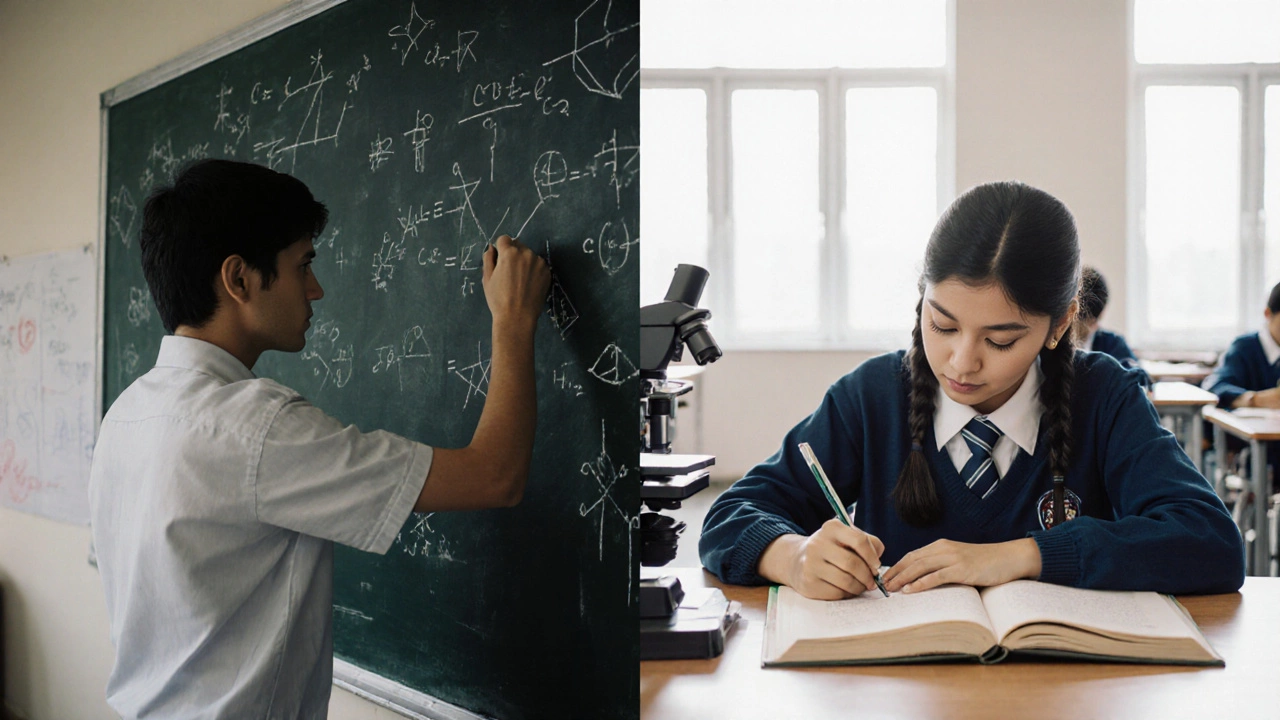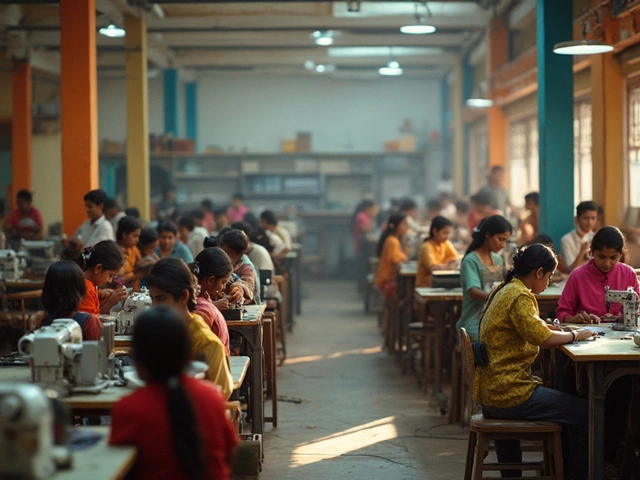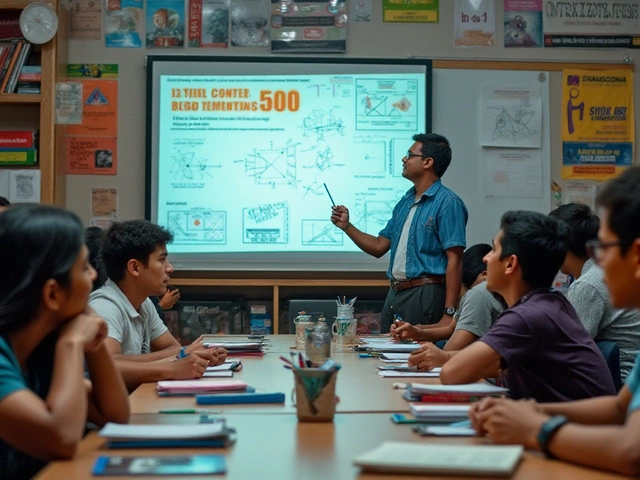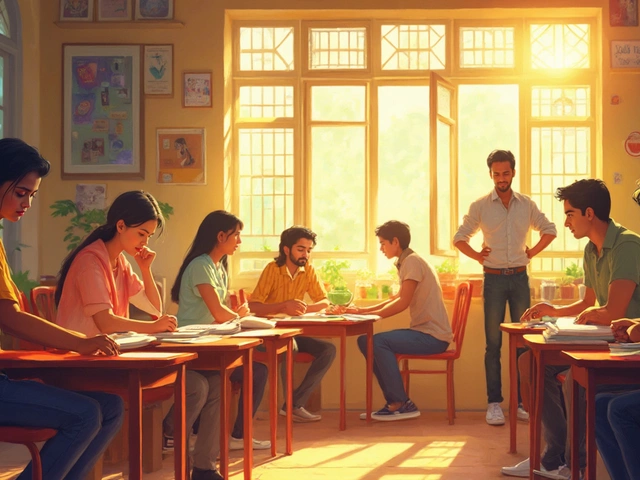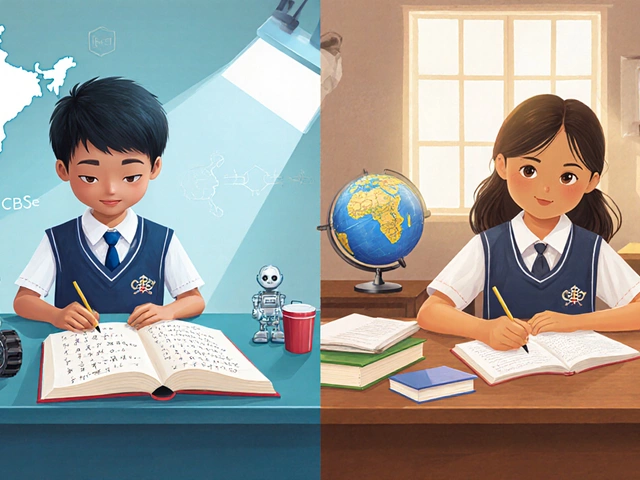Quick Takeaways
- CBSE and ICSE consistently rank as the two toughest school boards in India.
- CBSE’s syllabus is nationwide, math‑heavy and exam‑oriented, while ICSE’s is deeper, language‑rich and concept‑driven.
- Both boards demand strong time‑management, regular practice and a solid grounding in fundamentals.
- State boards vary widely, but most have lower overall difficulty scores than CBSE and ICSE.
- Choosing a board should match your learning style, college goals and the resources you can access.
What Makes a Board “Tough”?
Before naming the toughest boards, it helps to see how difficulty is measured. Experts look at four key factors:
- Curriculum depth: How many concepts are covered and how deeply they are explored.
- Assessment style: Whether exams test rote memorisation, problem‑solving, or a mix of both.
- Workload: Number of textbooks, assignments and optional projects per year.
- Pass‑rate pressure: The average percentage of students who clear the exams; lower rates often signal higher difficulty.
Using these criteria, the two boards that repeatedly top the difficulty charts are CBSE and ICSE.
Introducing the Heavyweights
When you hear about the CBSE the Central Board of Secondary Education, a national board that conducts classes 10 and 12 across India, the first thing most students notice is its uniform, nation‑wide syllabus. It was set up in 1962 to create a common educational standard. The board’s focus on mathematics, science and objective‑type questions makes it a favorite for engineering aspirants.
On the other side, the ICSE the Indian Certificate of Secondary Education, administered by the Council for the Indian School Certificate Examinations was introduced in 1958. It leans heavily on language skills, analytical writing and a broader range of subjects, which is why many liberal‑arts students prefer it.
Both boards are national, but they differ in philosophy. CBSE aims for breadth and competitive edge, whereas ICSE pursues depth and holistic understanding.
Why CBSE Is Considered Tough
CBSE’s reputation for difficulty stems from several practical realities:
- Math‑centric exams: Class10 and 12 papers allocate up to 40% of marks to mathematics and physics, pushing students to master calculations under time pressure.
- Fast‑track syllabus: Concepts are introduced early and revisited many times, leaving little room for gaps.
- High competition: Because most engineering entrance exams (JEE, NEET) are based on CBSE, students treat board exams as a rehearsal, raising the overall standards.
- Strict grading: Internal assessments are limited; the final exam carries 80% of the total, so a single bad paper can drop a score dramatically.
These pressures result in an average pass rate of about 84% for class10 and 78% for class12, according to the Ministry of Education’s 2023 report.
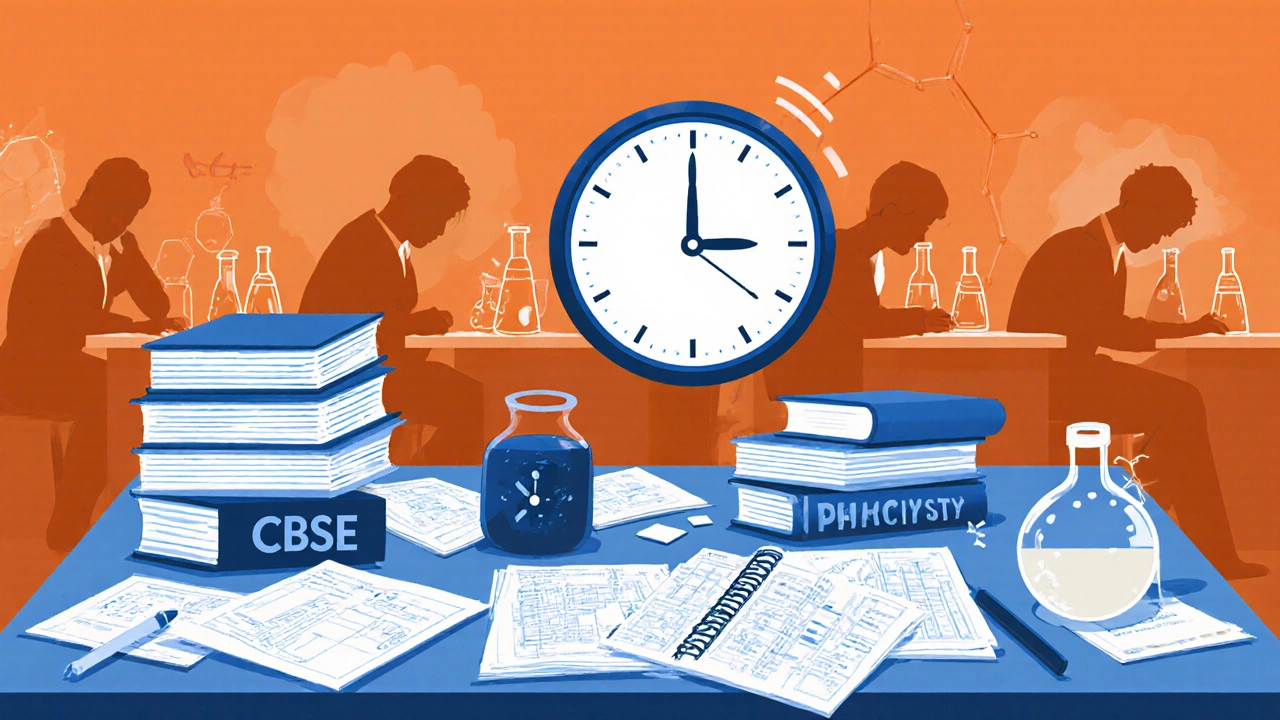
Why ICSE Is Considered Tough
ICSE’s difficulty is a different beast. Its hallmark features are:
- Concept‑heavy syllabus: Each subject goes deeper, especially English, history and biology, demanding critical analysis rather than memorisation.
- Varied assessment: Exams blend short answer, long answer, and project work, testing both knowledge and communication skills.
- Higher language standards: English is the medium of instruction for most subjects, and the board’s grammar and literature sections are notoriously rigorous.
- Lower average pass rate: Around 71% for class10 and 65% for class12 (ICSE Council data, 2023), reflecting the tougher grading curve.
Because ICSE prizes depth, students often spend extra hours on essays, lab reports and research projects, adding to the workload.
State Boards: A Quick Comparison
India’s 30+ state boards each have their own flavor. To give a sense of where they stand, here are three of the most common:
Maharashtra State Board covers Marathi, Hindi and English, with a focus on regional history and practical science
Karnataka State Board offers Kannada as the primary language and includes a strong emphasis on mathematics and vocational subjects
Tamil Nadu State Board uses Tamil and English, known for a rigorous mathematics curriculum but comparatively lighter language requirements
Generally, state boards have higher pass rates (90%+ for many), less uniform assessment styles, and a curriculum that can be narrower than CBSE or ICSE. That doesn’t mean they’re easy; they can be challenging in regional contexts, especially when resources are limited.
Side‑by‑Side Comparison
| Board | Grades Covered | Language of Instruction | Exam Pattern | Perceived Difficulty | 2023 Pass Rate |
|---|---|---|---|---|---|
| CBSE | 10‑12 | English (optional Hindi) | Mix of MCQs, short answers, practicals | High (math‑heavy) | 84% (10), 78% (12) |
| ICSE | 10‑12 | English | Long answers, projects, lab work | Very High (concept‑rich) | 71% (10), 65% (12) |
| Maharashtra State Board | 10‑12 | Marathi, English, Hindi | Mostly short answers, some MCQs | Medium | 92% (10), 88% (12) |
| Karnataka State Board | 10‑12 | Kannada, English | Short answers, practicals | Medium | 90% (10), 86% (12) |
| Tamil Nadu State Board | 10‑12 | Tamil, English | Short answers, MCQs | Medium‑Low | 94% (10), 91% (12) |
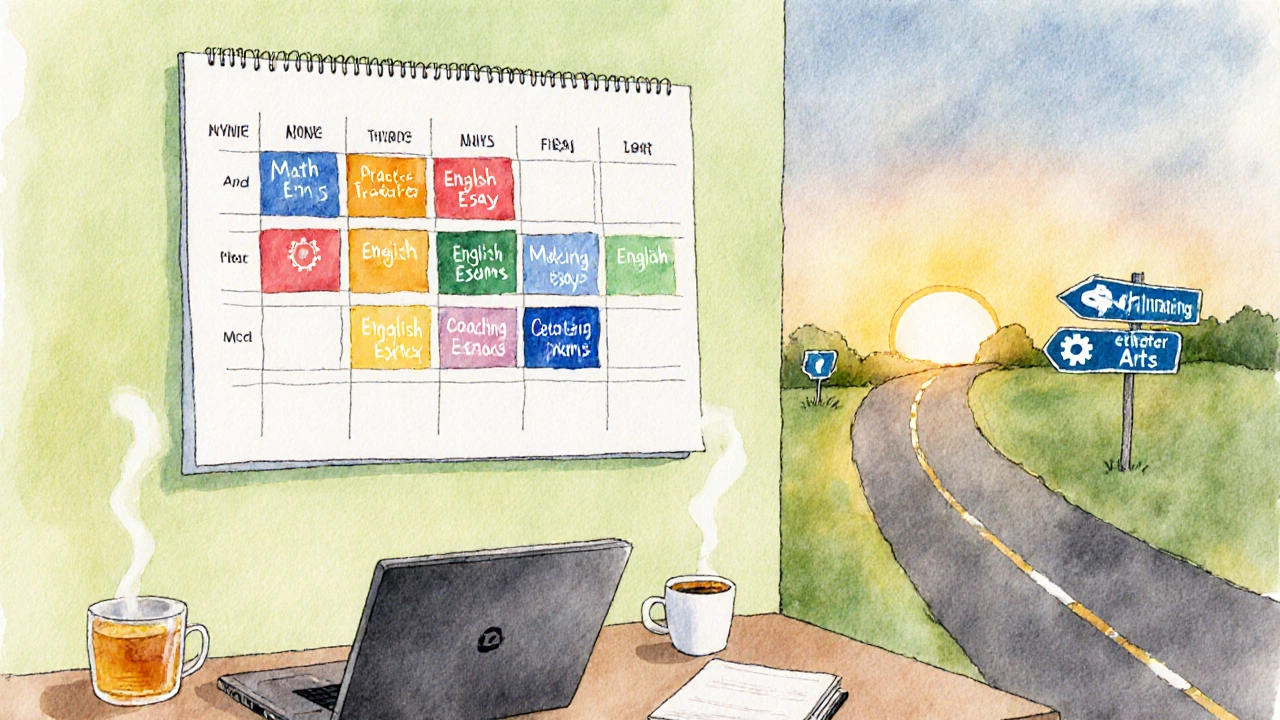
How to Tackle the Toughest Boards
If you or your child are gearing up for CBSE or ICSE, a few practical habits can make the journey smoother:
- Build a study calendar: Break the syllabus into monthly chunks; allocate extra time for math (CBSE) or English (ICSE).
- Practice past papers: Solve at least five full‑length papers per subject; review every mistake.
- Join a coaching class or online platform: Structured guidance helps fill gaps, especially for labs and project work.
- Focus on concepts, not shortcuts: Both boards penalise shallow recall; deep understanding earns marks in long‑answer sections.
- Take mock exams under timed conditions: Simulating the real exam builds stamina and reduces anxiety.
Remember, the toughest board in India isn’t an unbeatable monster; it’s a set of standards you can meet with consistent effort.
Common Misconceptions
Many students believe that only “elite” schools offer CBSE or ICSE, but both boards are available in public, private and even online schools across the country. Another myth is that state boards are automatically easier - the truth is that a weak school infrastructure can make any board feel hard.
Frequently Asked Questions
Which board is best for engineering aspirants?
CBSE aligns closely with the JEE syllabus, so most engineering hopefuls choose it. The board’s emphasis on physics, chemistry and mathematics mirrors the entrance exam pattern.
Is ICSE harder than CBSE for science subjects?
ICSE’s science curriculum goes deeper into theory and lab work, demanding more analytical writing. CBSE may be tougher in sheer volume of problems, but ICSE challenges conceptual clarity.
Can I switch from a state board to CBSE in 11th grade?
Yes, most schools accept transfers up to 11th grade. Expect a brief adjustment period, especially for maths and science terminology.
What resources help with ICSE English?
Reading classic literature, practising essay outlines, and using the official ICSE grammar workbook are top strategies. Online forums also share model answers for past papers.
Do state boards offer competitive exam preparation?
Many state‑board schools now incorporate JEE and NEET coaching, but the coverage may be less extensive than CBSE schools that embed it into the regular syllabus.
Next Steps
1. Identify your long‑term goal (engineering, medicine, arts).
2. Match the board that best supports that path - CBSE for engineering/medical, ICSE for liberal arts and strong language skills.
3. Research schools in your city that offer the chosen board; check their results and facilities.
4. Set up a study plan using the habits above and start early - the sooner you build a routine, the less pressure you’ll feel near the exams.
Choosing between the toughest boards isn’t about picking a “harder” option; it’s about aligning the board’s strengths with your personal learning style and career ambitions.
